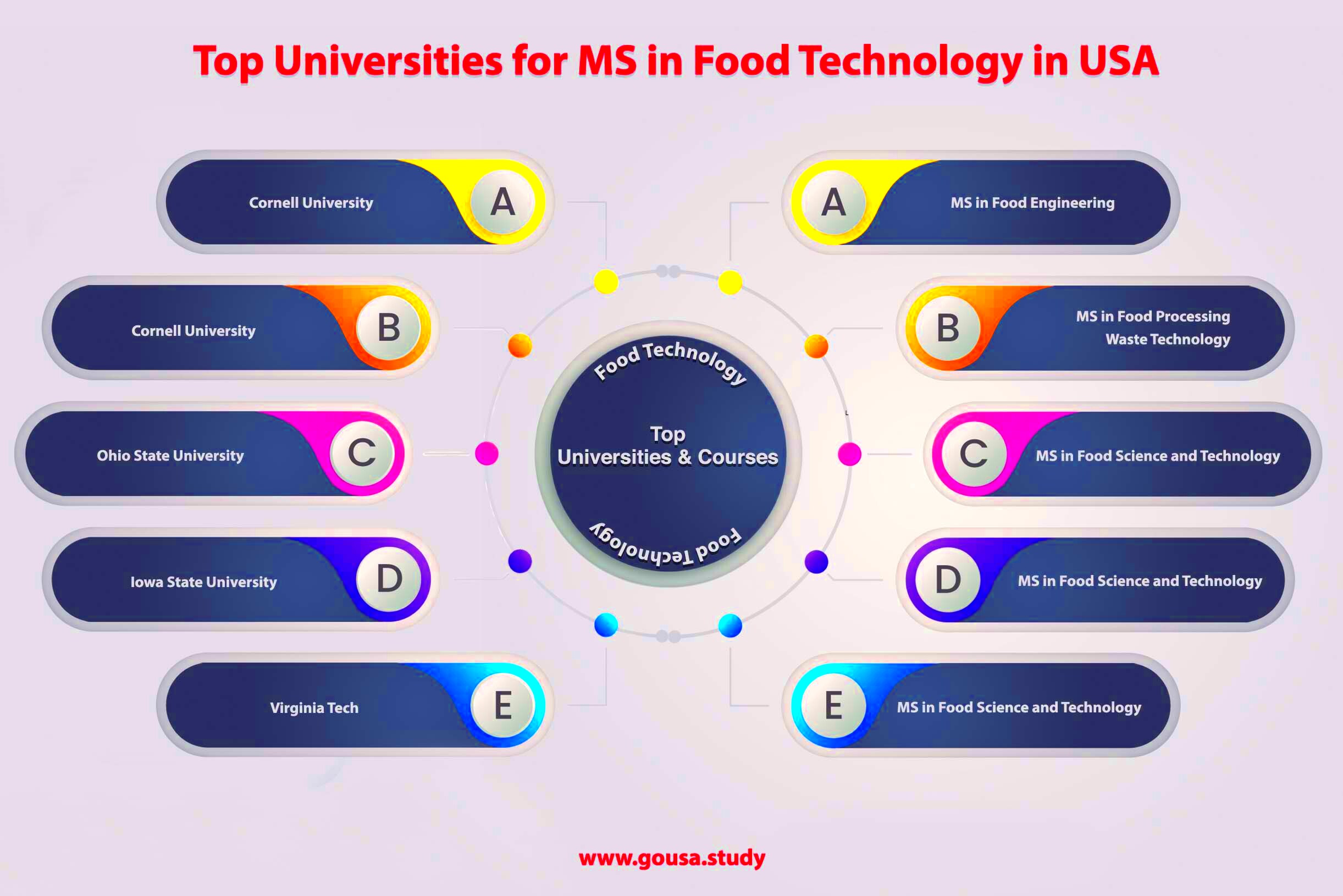Technology and science of food have become an integral part of our daily routines. They deal with processing, preservation and safety of foods. Food technologists use biology, chemistry and engineering among other disciplines in ensuring that the food we eat is safe, nutritious and palatable. As global food demands increase, this area’s importance is more evident.For this reason, colleges offering courses in Food
technology and science enable students who desire to work in it to acquire skills and knowledge necessary for addressing such challenges that deal with food.
Importance of Food Technology and Science Programs

There are several reasons why food
technology and science programs are important, such as:
- Food Safety: With increasing foodborne illnesses, these programs teach students how to ensure food safety through proper handling and processing.
- Nutritional Quality: Programs emphasize the importance of nutrition and help in developing healthier food options for consumers.
- Innovation: Students learn how to innovate and create new food products that meet changing consumer preferences.
- Sustainability: As sustainability becomes crucial, these programs address environmentally friendly practices in food production.
In the long run, food tech and science courses are crucial in equipping future experts to deal with difficulties in the food sector, ensuring that we possess safe, healthy, and sustainable sources of food.
Key Features of Leading Programs
When searching for the best food science and
technology program, keep in mind these important characteristics:
| Feature | Description |
|---|
| Accreditation | Look for programs accredited by recognized bodies, ensuring quality education. |
| Hands-on Experience | Programs should offer lab work and internships to provide practical skills. |
| Research Opportunities | Access to research projects allows students to explore and innovate. |
| Industry Connections | Strong ties with food companies can enhance job placement opportunities. |
| Diverse Curriculum | Look for a variety of courses covering food safety, processing, and quality control. |
Focusing on these aspects, therefore, enables the students to select those courses that are likely to shape their careers in food
technology and science positively.
Top Universities Offering Food Technology and Science
While choosing the right college for food
technology and science is very important, it is also fundamental that a reference point be established to enable those aspiring for such career paths a measure of proper selection. Cheap universities in America that offer good courses:
- Cornell University: Known for its strong emphasis on food science research and innovation.
- University of California, Davis: Offers a comprehensive program with a focus on agricultural sciences and food processing.
- Penn State University: Provides a robust curriculum that covers food safety, product development, and sensory evaluation.
- Michigan State University: Focuses on sustainability and food quality, preparing students for modern challenges.
- Texas A&M University: Offers hands-on experience through its extensive facilities and partnerships with food industry leaders.
Not only do these institutions supply a strong academic base, but they additionally promote an industry link network. By virtue of these links, students are able to access internships and job opportunities which make them well prepared for the labor market.
Skills Gained from Food Technology and Science Education
The curriculum of Food Technology and Science offers pupils a wide range of abilities that are held in high regard by the food industry. The following are some major competencies you may anticipate acquiring:
| Skill | Description |
|---|
| Analytical Skills | Students learn to analyze food products and processes, ensuring quality and safety. |
| Problem-Solving | Education focuses on identifying issues and developing effective solutions in food production. |
| Technical Skills | Hands-on training with laboratory equipment and technology is an essential part of the curriculum. |
| Communication Skills | Students learn to present their findings and collaborate with teams, crucial in any professional setting. |
| Research Skills | Involvement in research projects helps students learn to conduct experiments and gather data. |
Such abilities not only improve job prospects for them but also equip them to address diverse obstacles in food sector.
Career Opportunities in Food Technology and Science
To graduate on a bachelor’s degree in the field of food technology and science, a plethora of career options is available. Several common positions which may interest you include:
- Food Scientist: Conduct research to develop new food products and improve existing ones.
- Quality Assurance Specialist: Ensure that food products meet safety and quality standards.
- Food Technologist: Work on food processing techniques and improve production methods.
- Regulatory Affairs Specialist: Ensure compliance with government regulations regarding food safety.
- Product Development Manager: Oversee the development of new food products from concept to market.
Moreover, those who have completed their degrees are capable of locating jobs in areas such as gastronomic promotion, logistics administration and teaching. There has been an increase in the level of demand for people who are trained within this area which means that this is indeed a good time to undertake a course related to food tech and science.
Challenges in the Food Technology and Science Field
The area of food science and technology, despite its lucrative nature, bears a number of difficulties. The industry is rapidly changing and therefore poses several challenges for practitioners who want to guarantee food safety, quality and sustainability. Some important challenges are:
- Food Safety Concerns: With the rise of foodborne illnesses, maintaining food safety is paramount. Professionals must stay updated on safety protocols and regulations.
- Technological Advancements: Rapid changes in technology mean that professionals need to continually adapt and learn about new tools and methods.
- Sustainability Issues: Balancing production needs with sustainable practices can be difficult. The industry is under pressure to minimize its environmental impact.
- Global Supply Chain Challenges: Events like pandemics or natural disasters can disrupt supply chains, making it harder to source ingredients and distribute products.
- Consumer Trends: Keeping up with changing consumer preferences, such as dietary restrictions and ethical concerns, requires constant innovation and adaptability.
Collaboration, imagination and an unwavering necessity for ongoing education are very crucial in confronting these difficulties; tearing down walls and bringing people together would help. It is essential for professionals to always anticipate ways of meeting their obligations to consumers while also catering for industries’ needs.
Frequently Asked Questions
There exist frequent inquiries concerning food technology and science among potential learners and practitioners, similar to other domains. Some of these questions that are commonly asked include:
| Question | Answer |
|---|
| What degrees are needed for a career in food technology? | A bachelor’s degree in food science, food technology, or a related field is typically required, with many professionals pursuing advanced degrees for specialized roles. |
| What industries hire food technology graduates? | Graduates can work in various sectors, including food manufacturing, quality assurance, regulatory agencies, and research organizations. |
| Is hands-on experience important? | Yes, hands-on experience through internships or lab work is crucial for gaining practical skills and understanding real-world applications. |
| What skills are most valuable in this field? | Analytical skills, problem-solving, technical knowledge, and strong communication abilities are essential for success. |
Conclusion
The areas of food science and technology are critically important and they have huge effects on the way we deal with our food. More and more, these challenges focus on safety, sustainability, and consumer demand; therefore, they require the involvement of professionals in the industry. Students enrolled in this degree course can acquire skills that prepare them for careers in diverse fields.Consequently, this moment is quite nice to think of a career in food production at reputable universities with comprehensive programs and booming job market. Dealing with these hurdles as well as making advances in this line of work leads to a satisfying profession that enhances healthier and more sustainable eating habits.
 There are several reasons why food technology and science programs are important, such as:
There are several reasons why food technology and science programs are important, such as:
 admin
admin








